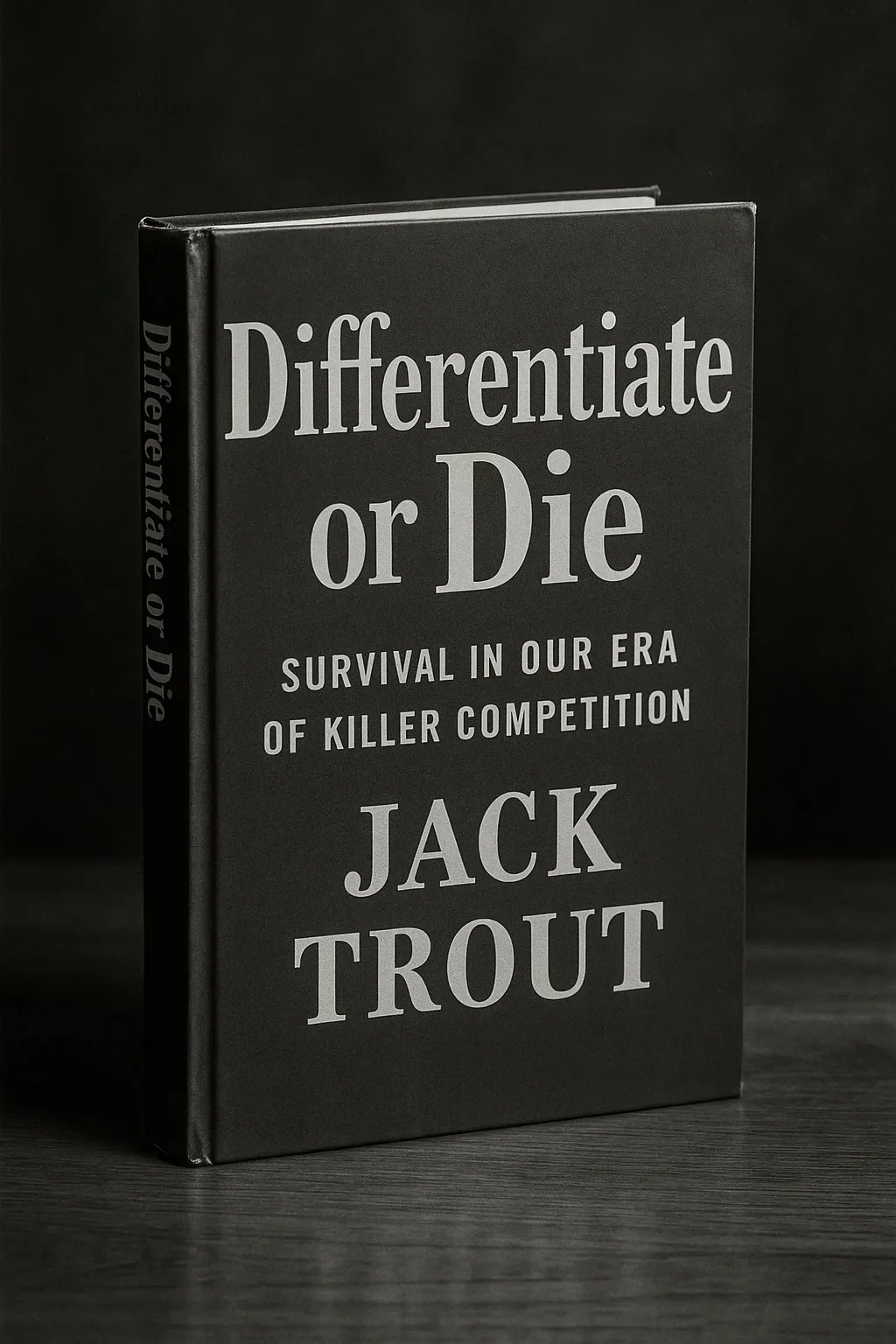Differentiation is Hard; A Point of View Makes All the Difference
Sameness. That is and will be the most important problem of the Intelligent Era. I am more convinced than ever that we will be inundated with goods, services, and experiences that are basically the same. And the reason is simple: with AI, the cost of building new solutions will decrease, but the solutions built with AI will almost always be middle-of-the-road solutions. Companies will build quickly—because they must—but they will basically offer the same thing that their competitors offer.
I attended Arival last week in Washington, D.C. The week before that, I led the Experience Strategy Collaboratives in Provo, Utah. One of the presenters, Erik Blackford (the former CEO of Expedia and an influential VC in the AI and travel spaces), popped up a slide with Jack Trout’s timeless book, Differentiate or Die, and said that differentiation is the most important thing that companies must focus on. A week prior, I had mentioned at the Collaboratives that having a strategic point of view is the most important thing companies should focus on.
Having a strategic point of view is not the same as Jack Trout’s differentiation. It’s better
Differentiation was conceptualized by Trout and others for a different time and place. In those days, companies could count on ideas that Trout espoused: Being first, owning an attribute, leading, have a heritage, owning a niche, and so on. Trout’s approach informed brand strategy for decades. And today most strategists associate differentiation with quality, creativity, price, or breadth of offerings. Back then, there was a lot of sameness because there were limited ways to produce goods and services.
Today, there is sameness because there are limited ways of thinking about business models.
I’m serious. If you think that the only way to grow is to improve quality, creativity, prices, or breadth of offerings, you are limited by your own thinking. And there’s an LLM for you. AI will only perpetuate the limited ways that strategists think about their offerings, because it’s learning from all of the literature that’s been written since 1981, the year Jack’s first book on positioning came out.
A strategic point of view is differentiating, but it is more than that. Here’s how it works. As a strategist, you start by recognizing that your customer will have access to everything that you have to offer. In fact, there will be many, many solutions that they can choose from that will do basically the same thing. But they will choose your solution over the others because they know that you understand their near future needs better than anyone else.
This is something that Trout did not talk about: near future needs. It is not enough today to deliver quality, speed, or friendly service. It’s not enough to tell a compelling story, build a beautiful brand, etc. You must have foresight. And you have to combine that foresight with an experience that improves your customers performance.
The best CEOs today have foresight. Their companies deliver experiences that anticipate needs. And they use their foresight into customer needs to deploy AI in a very different way than their competitors do. They make decisions about what to include and what not to include based on their point of view. And their customers respect them for it.
Having a strategic point of view conveys confidence to your customers. It suggests that your company has a plan for the future; that you will be around while others won’t; and that you will improve your customers’ performance.
In our September meetings, the Collaboratives members built strategic points of view for their companies. Then we used generative AI to test the impact of their POVs on their businesses and their marketplaces. It was stunning how different the AI agents responded when they were trained to pay attention to the company’s unique POV. All of a sudden, ChatGPT and Claude started delivering recommendations that were truly unique and compelling. And the strategists in the room knew they were on to something very, very different.


